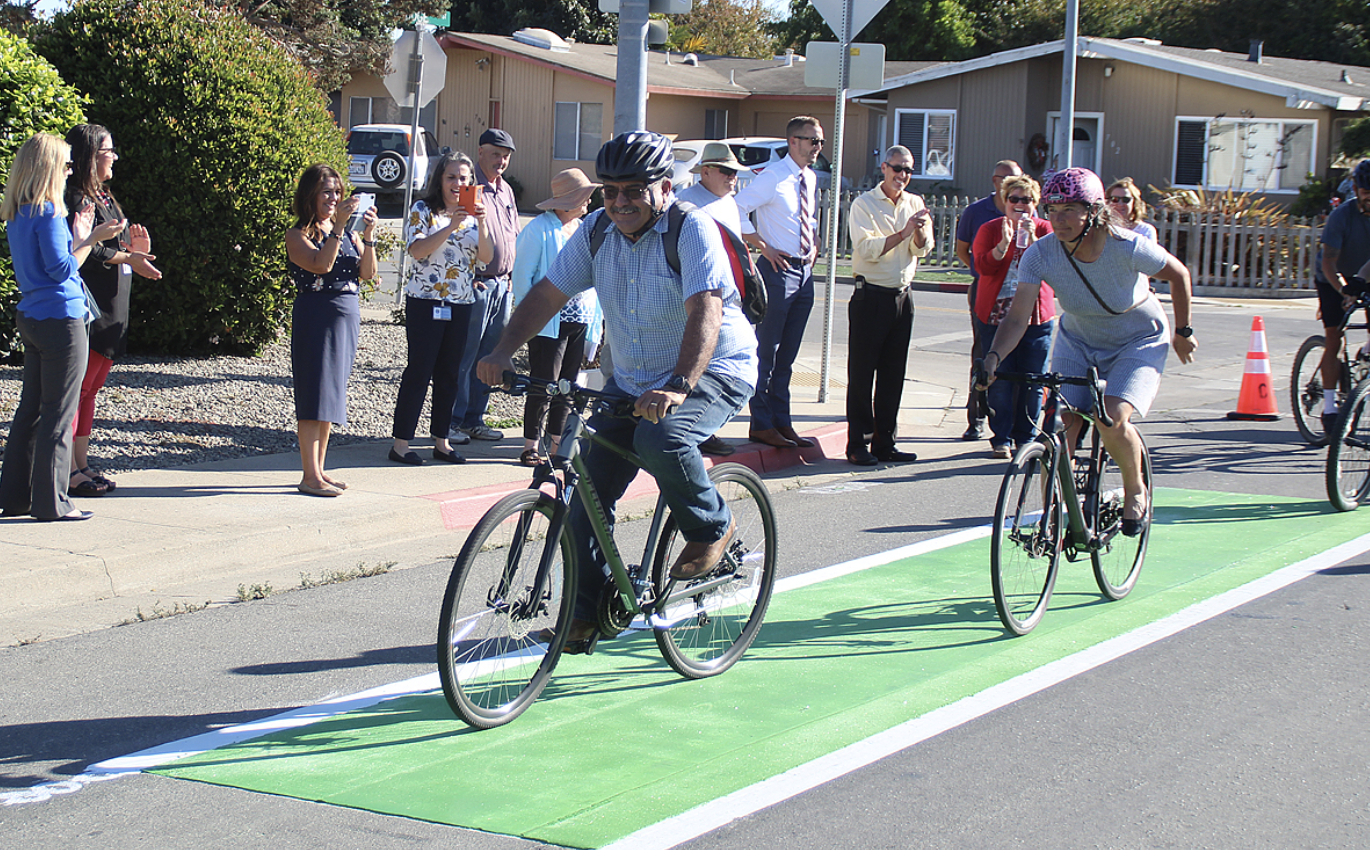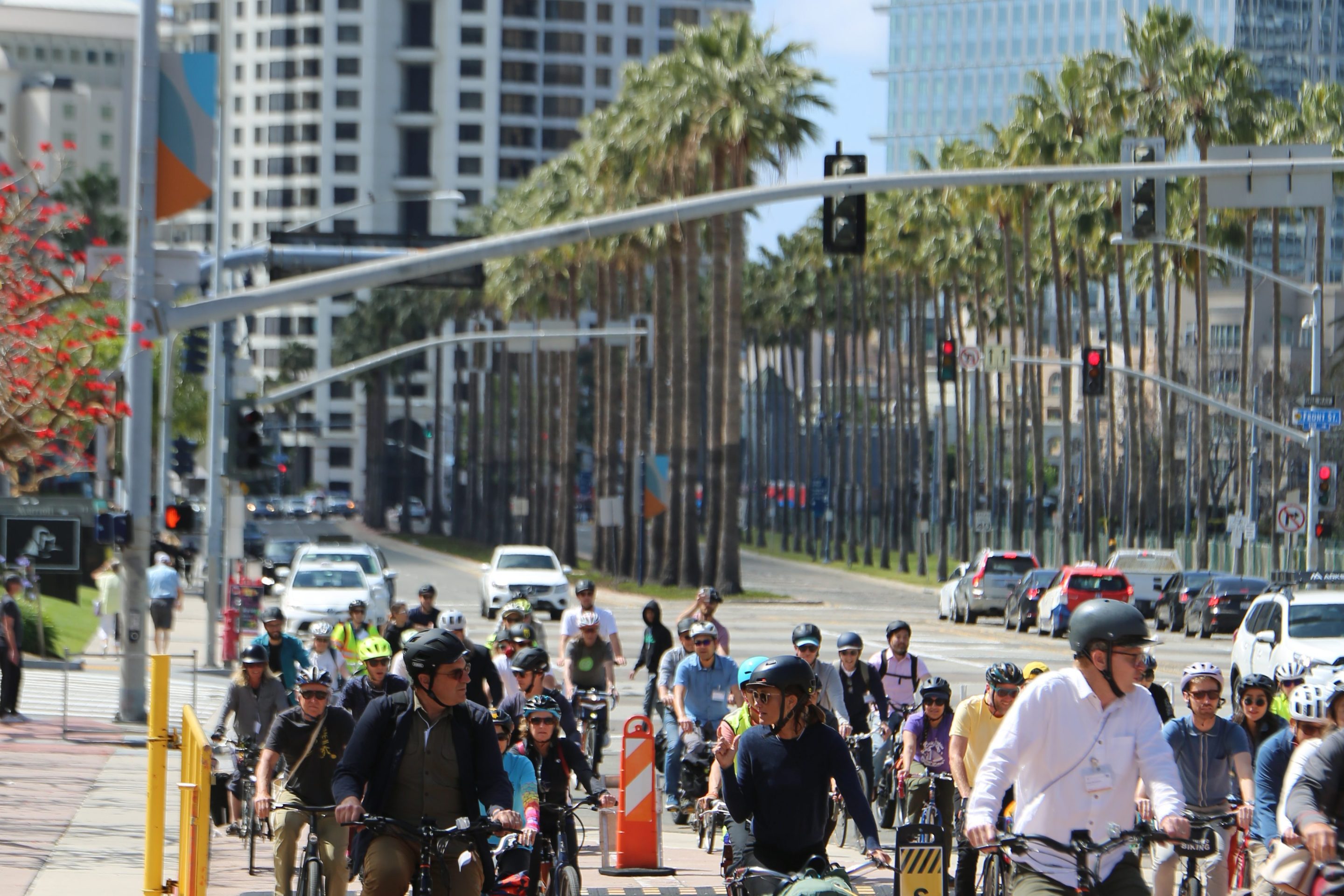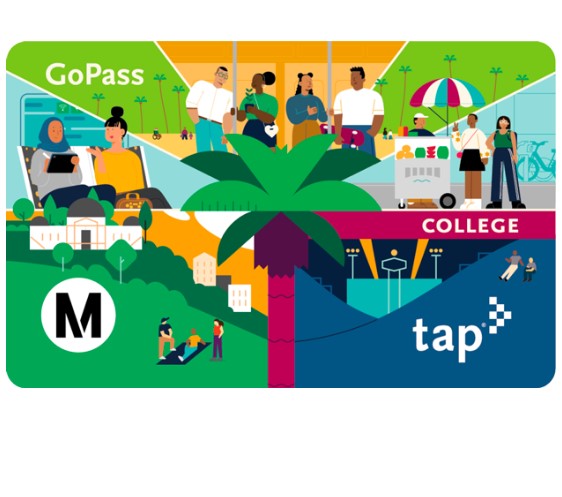The California Transportation Commission (CTC) has approved guidelines for the Active Transportation Program Cycle 7 and issued a call for applications, which are due June 17.
The program currently has at least $100 million budgeted for each year of Cycle 7, which programs four years' worth of funds, through 2029. According to a recent CTC presentation, the total for all four years is more than $550 million - but that also depends on the outcome of current state budget negotiations. Governor Newsom has proposed cutting - or delaying - some of the ATP funding after the first year, but until the budget has been signed in June, nothing is concrete. Meanwhile the Commission has approved a budget estimate that assumes no changes until told otherwise.
Funds for the ATP, which is in its tenth year, come from the federal Transportation Alternative Program, the federal Highway Safety Improvement Program, the State Highway Account, and California's Road Maintenance and Rehabilitation Account (S.B. 1).
At the same meeting, the CTC also approved the Bay Area's regional guidelines. The Metropolitan Transportation Commission (MTC) will separately allocate about $50 million for projects in that region. Other large Metropolitan Planning Organizations (MPOs) who allocate money locally under the ATP must submit their own guidelines for CTC approval by May 10.
State application guidelines, found here, are the result of multiple in-depth workshops with stakeholders over the last year to revise and update guidelines and scoring rubrics. They include distribution rules, who is eligible to apply for ATP grants, and eligible project types.
According to a staff report at the CTC meeting, changes to the guidelines were minimal, to maintain consistency so it is easier for those whose projects came close but didn't quite make the funding cut-off to reapply. They have also been developed and refined over the ten years and six cycles preceding this new milestone. But there were some updates, including a new online application portal, which should be a great relief to applicants, and a new internal process for tracking federal equity requirements. More details can be found here.
Ten Years of ATP
"Since its inception, the Active Transportation Program has funded over 800 active transportation projects across the state, benefiting both urban and rural areas. More than 400 of the funded projects are Safe Routes to Schools projects and programs that encourage a healthy and active lifestyle throughout students' lives. In addition, every cycle has seen more than 85 percent of funds going towards projects that will benefit disadvantaged communities throughout the state," says the program's website.
The site also acknowledges how difficult it is to win ATP grants, which require a complex application, are extremely competitive, and are in much higher demand than supply can meet. Therefore it offers a list of other programs that fund active transportation projects as a resource for those looking to build safe roads.
Quick-Build
During the last ATP cycle, a separate "quick build" pilot program was launched, but no projects were chosen for funding that year. The Quick Build Pilot Program will continue, but CTC staff will require a pre-application meeting to make sure potential projects fit requirements for the pilot. Quick-build projects require minor construction and are typically built with durable, low- to moderate-cost materials, lasting from one year to five years. To schedule a meeting, contact ATP [at] catc.ca.gov.
Staff anticipates dedicating at most $7 million to quick-build projects. Applicants will submit a smaller, separate application, and the CTC may select several - or none.
Technical Assistance
CTC staff have already held over 86 site visits with potential applicants, and offer further technical assistance as well. In the Bay Area, the MTC will provide feedback on applications they receive by May 27. MTC staff is also planning to host a regional workshop an April 23 (register here).





